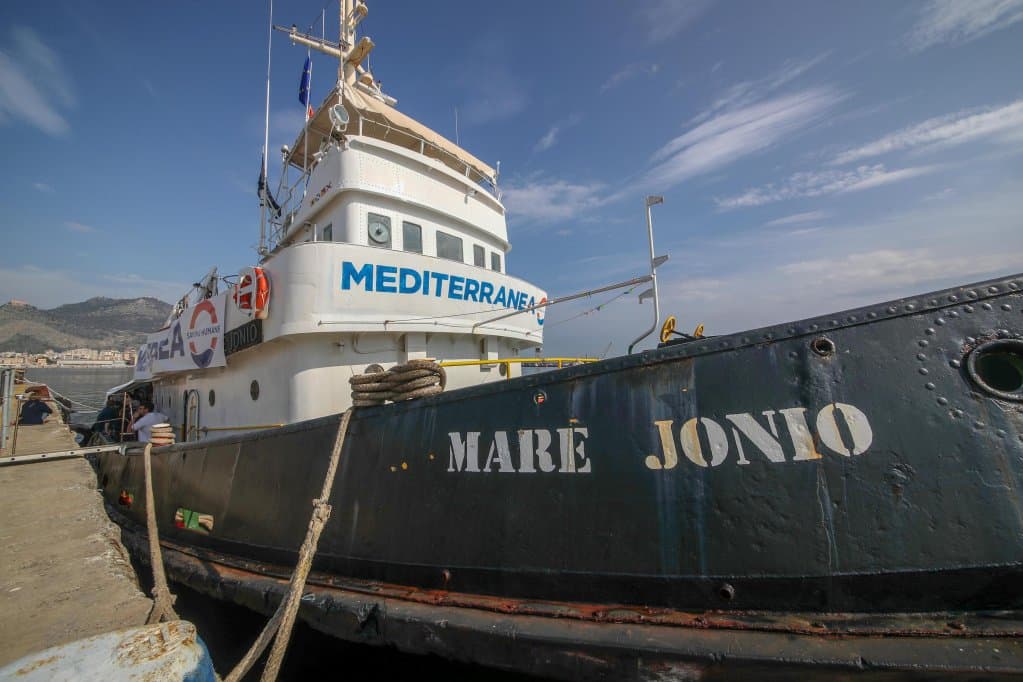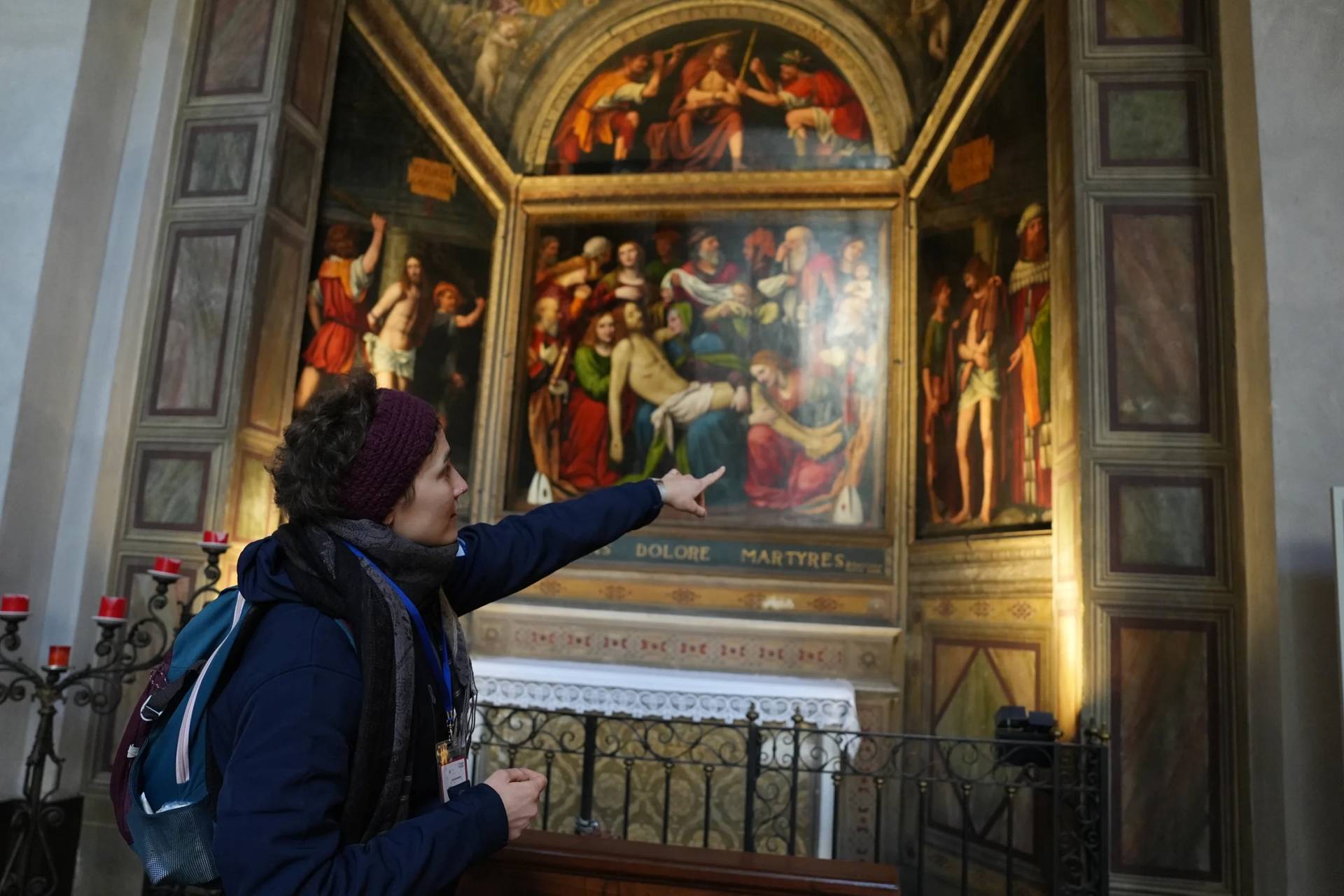ROME – As Italy struggles to cope with a record spike in migrants and refugees, with more than 3,300 people arriving over just the past weekend, Pope Francis has encouraged the work of a leading NGO engaged in seaborne rescues at a moment when critics are accusing such NGOs of fueling illegal immigration and complicating humanitarian efforts.
So far, Italy has absorbed 20,046 migrants in 2023, putting the country on course to beat the all-time high for arrivals set in 2016, when 181,436 people reached the country, generally arriving on flimsy overcorwded boats attempting to cross the Mediterranean Sea.
Most of the new arrivals have dismenbarked on the island of Lampedusa south of Sicily, where a center designed for 400 people is currently struggling to accomodate more than 2,500.
Francis is no stranger to Lampedusa, as his first trip outside Rome in 2013 was to visit the island off Sicily to meet migrants detained in a center there and lay a wreath in the sea commemorating those who died attempting to make the crossing.
On March 22, the pontiff received members of the “Mediterranea Saving Humans” group in audience, just before the record-setting weekend in Lampedusa. The group operates a 50-year-old tugboat converted into a rescue vessel called the “Mare Jonio,” which is used to pick up people stranded at sea while attempting to reach Europe.
The group was accompanied by Canadian Cardinal Michael Czerny, who heads the Vatican’s Dicastery for Integral Human Development, along with three Italian prelates from Sicily and Naples, where the impact of the refugee crisis has been most keenly felt.
The group, which belongs to a network of popular movements around the world sponsored by Pope Francis, thanked the pontiff for his leadership on migrant and refugee issues. At the end of the audience, a Palermo-based artist presented the pope with a painting of St. Erasmus, a “fisher of men,” wearing a life jacket and holding two oars.
Although Mediterranea’s efforts to save migrants and refugees stranded at sea have won applause in activist and humanitarian circles, they’re also controversial among some on the Italian right who accuse the group of promoting illegal immigration and profiting from human tragedy.
At the moment, the group is facing a probe in Sicily for allegedly taking on board 25 migrants who had been picked up in the Mediterranean Sea by a Danish oil tanker for a payment of $135,000 and then dropping off the migrants in a Sicilian port.
Both the organization and the Danish company that operates the tanker have insisted that the $135,000 was not a payoff but rather a donation made two months after the fact, intended to thank Mediterranea for its efforts and also to compensate the group for the costs of having its rescue vessel impounded.
Claims that NGOs which rescue migrants at sea do for money, and in effect are human traffickers, is a rhetorical staple on Italy’s political right, including supporters of the current government of conservative Prime Minister Giorgia Meloni.
The Italian Coast Guard issued a statement Sunday complaining that such NGOs are actually harming rescue efforts by “”overloading the communication systems of the National Rescue Coordination Center, overlapping and duplicating the signals of the already present air assets of the Italian State.”
According to Italy’s interior ministry, the number of migrants and refugees who’ve arrived on the country’s shores by boat has more than tripled in the first two months of 2023 as compared to the same period last year. Many of these migrants are either Tunisians fleeing that country’s political crisis, or sub-Saharan Africans who’ve made their way to Tunisia in an effort to cross into Europe.
On February 26, a shipwreck involving a boatload of migrants off the coast of southern Italy near a town called Cutro killed an estimated 91 people, with bodies still being discovered, which also has fueled new ferment over immigration policy.
Though Francis himself did not address the controversy in the March 22 audience, a leader of the Mediterranea group named Luca Casarini said after the fact that he had spoken with the pontiff about Meloni’s claim that “my conscience is clean” in response to criticism that the government’s anti-immigrant policies contributed to the Cutro tragedy.
“Here indignation changes its nature,” Casarini wrote in a blog post.
“From an impulse that would not allow you to feel comfortable with yourself, which disturbs you inside to such an extent that you feel ashamed of what you are forced to see, it turns around and becomes indignation towards those who dare say, or even just allude, that such horror may also be your fault,” he wrote. “And it turns into an alibi for not doing anything, or letting things happen.”
The Italian bishops conference issued a March 23 statement calling for a new approach to the migrant and refugee crisis.
“Limiting oneself to closing, controlling and turning people back not only fails to offer broad solutions, but it also contributes to feeding illegal conduct,” the statement said.
“Far-sighted European and national policies are needed to manage entry flows via legal channels, which means safe paths that avoid dangerous sea voyages,” the bishops said.














